
Thermal Imaging Performance ENHANCED.
Boson® Thermal Camera Modules
NDAA compliant and ITAR free, the Boson family represents the most dynamic, highest-performing uncooled thermal imaging technology in the Teledyne FLIR portfolio. The small, lightweight, and low-power OEM package features multiple configurations and onboard image processing for qualitative and quantitative thermal imaging applications.
![]()
Firefighting
![]()
Surveillance
![]()
Security
![]()
Unmanned Systems
![]()
Industrial Inspection
![]()
Fixed-Asset Monitoring

Boson+ | The New Standard in LWIR
Boson+ sets the standard for longwave infrared (LWIR) OEM thermal camera performance and size, weight, and power (SWaP). It features an industry-leading thermal sensitivity of less than or equal to (≤)20 mK and an upgraded automatic gain control (AGC) filter delivering dramatically enhanced scene contrast and sharpness. Lower video latency enhances tracking, seeker performance, and decision support. Radiometry will be available on select 640 x 512 and 320 x 256 resolution models in Q1 of 2025.
Learn More
Boson+ CZ | High Performance Thermal with Continuous Zoom
The Boson+ CZ 14-75 combines Teledyne FLIR’s Boson+ world-class longwave infrared (LWIR) OEM camera module and 5x continuous zoom (CZ) lens offering a high–performance imaging solution. It features an industry-leading thermal sensitivity of ≤20 mK and an upgraded automatic gain control (AGC) filter delivering dramatically enhanced scene contrast and sharpness. The high-performance lens and control electronics maintain focus through zoom and provide real-time thermal gradient compensation as well as flexibility for user-defined command syntax and expansion for additional features.
Learn More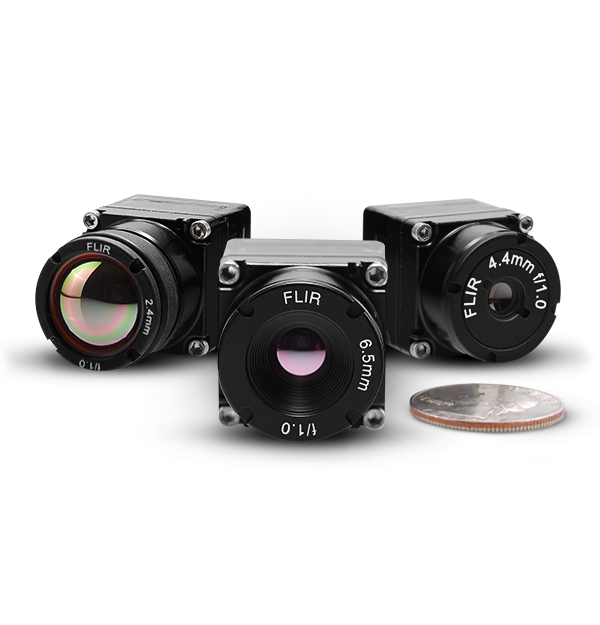
Boson®
The Boson thermal camera module sets the standard for size, weight, power, and performance (SWaP). Utilizing Teledyne FLIR's advanced image processing and several industry-standard communication interfaces, Boson enables applications from firefighting to unmanned aircraft systems (UAS), security, and automotive development kits, all for as little as 600 mW. The 12 µm uncooled detector comes in two resolutions – 640 × 512 or 320 × 256 – and multiple frame rate options. Radiometric models offer absolute temperature measurement. With multiple lens configurations also available, Boson offers the widest range of LWIR models from Teledyne FLIR and the most flexibility to integration programs.
Learn MoreBoson Comparison
Boson+ |
Boson |
|
|---|---|---|
Resolution |
VGA: 640 × 512 QVGA: 320 × 256 |
VGA: 640 × 512 QVGA: 320 × 256 |
Pixel Size |
12 μm | |
Spectral Band |
8μm - 14μm | |
THERMAL Sensitivity |
Industrial: ≤20 mK Professional: ≤30 mK |
Industrial: ≤40 mK Professional: ≤50 mK Consumer: ≤60 mK |
Video Pipeline & Latency |
AGC: Improved with deeper blacks Latency: <6 ms |
AGC: Yes Latency: <25 ms |
Scene Dynamic Range |
High Gain: up to 150 °C Low Gain: up to 350 °C |
High Gain: <140 °C Low Gain: <500 °C |
Frame Rate |
60Hz default; 30 Hz runtime selectable | 60 Hz & 9 Hz |
Radiometry Option |
Radiometry will be available on select 640 x 512 and 320 x 256 resolution models in Q1 of 2024. | Yes |
Low-Gain Mode Available |
Yes | Yes |
Shutterless OptionS |
Yes | Yes |
Video Library
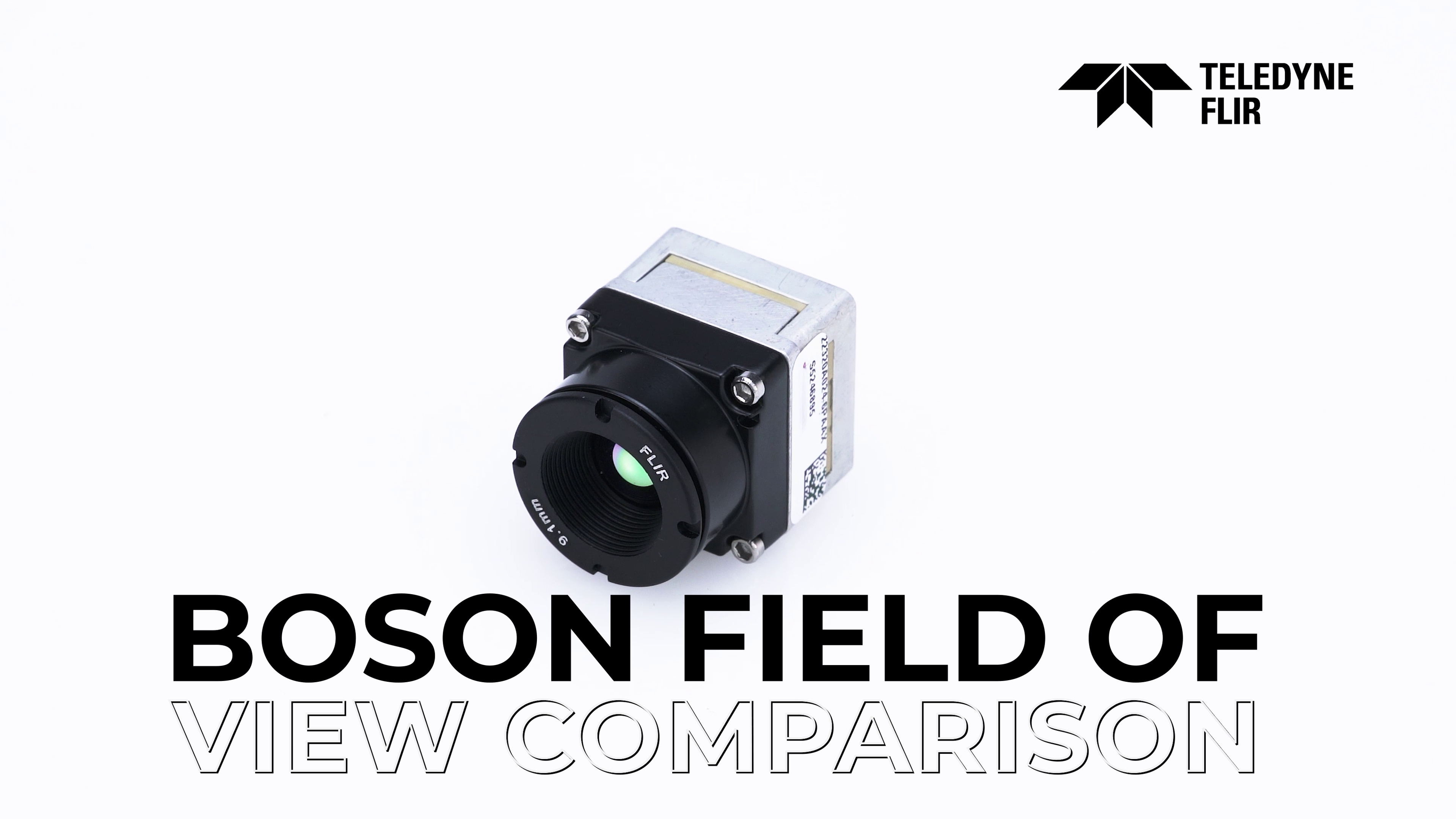
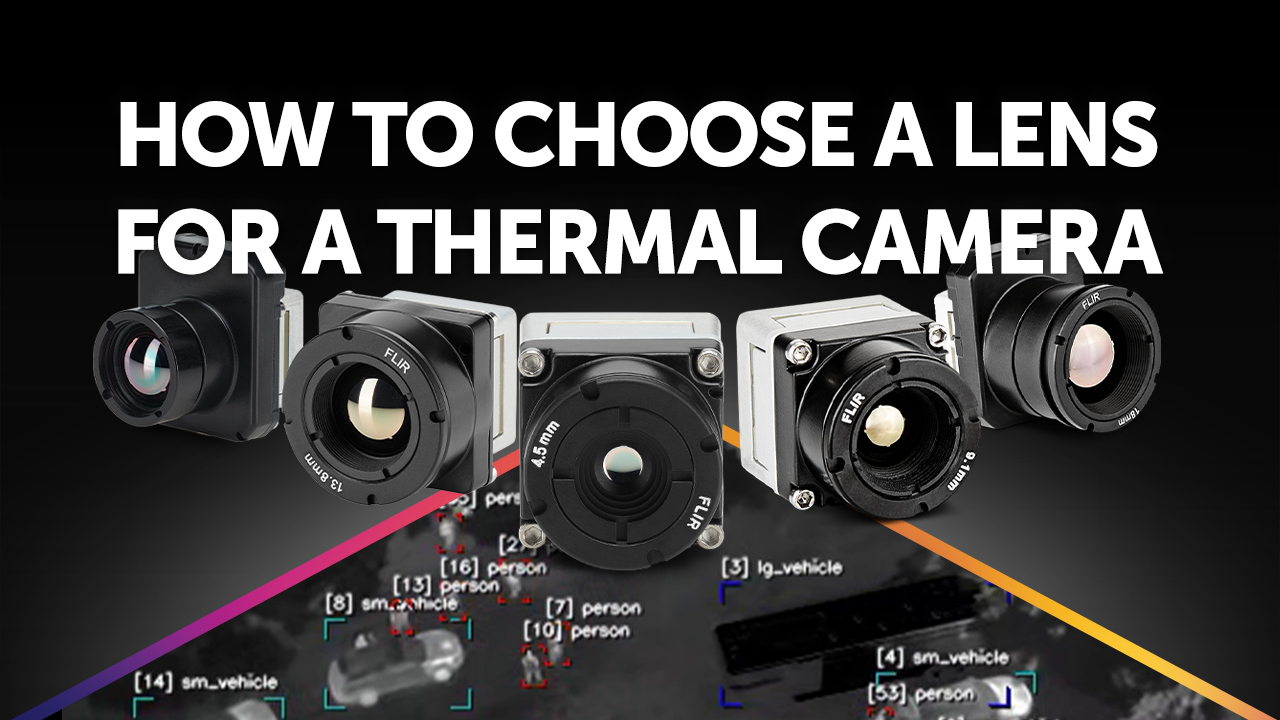


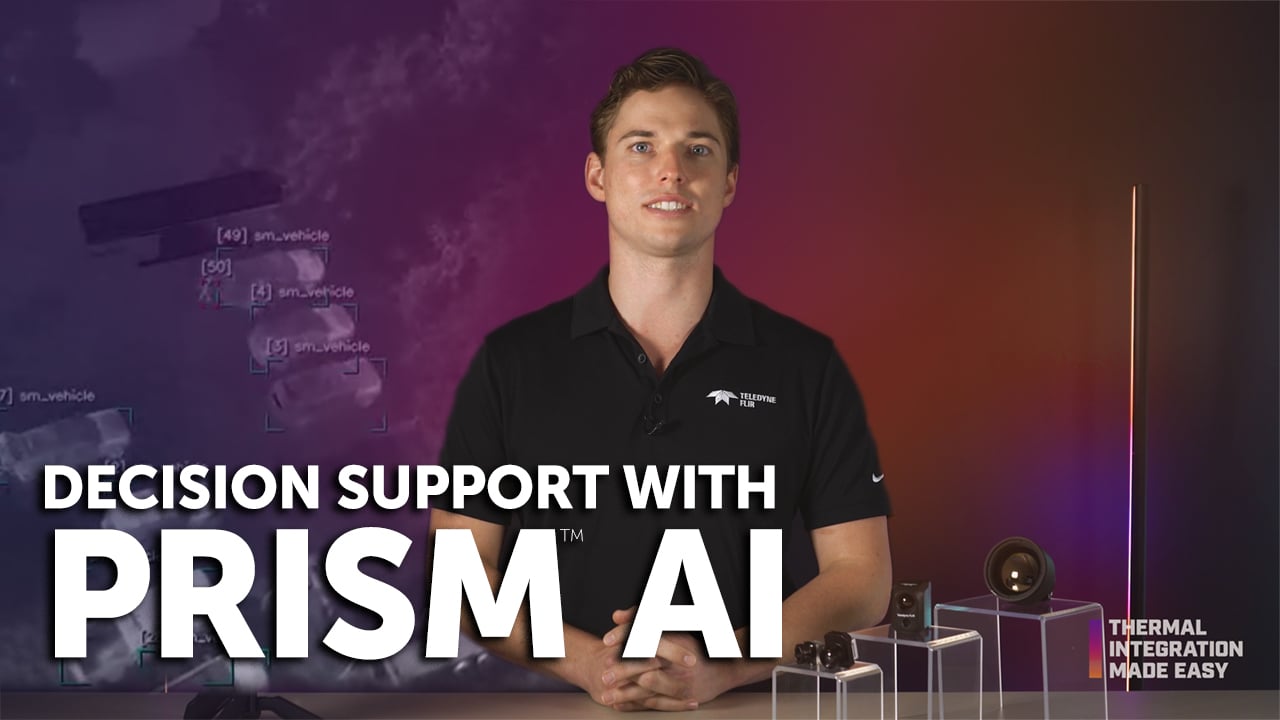
AI Decision Support with Prism AI







What is Thermal Sensitivity and How Important is NETD for Thermal Imaging?

RESOURCE CENTER
NEW Educational Video & Download Series
Integrating Teledyne FLIR thermal camera modules is now easier with our library of how-to-videos, application notes, and our comprehensive support center with product drawings, datasheets, and more!
Need Support?
Your home for documents, software, and STEP files. We’re reinventing the ownership experience. Experience what Teledyne has to offer.
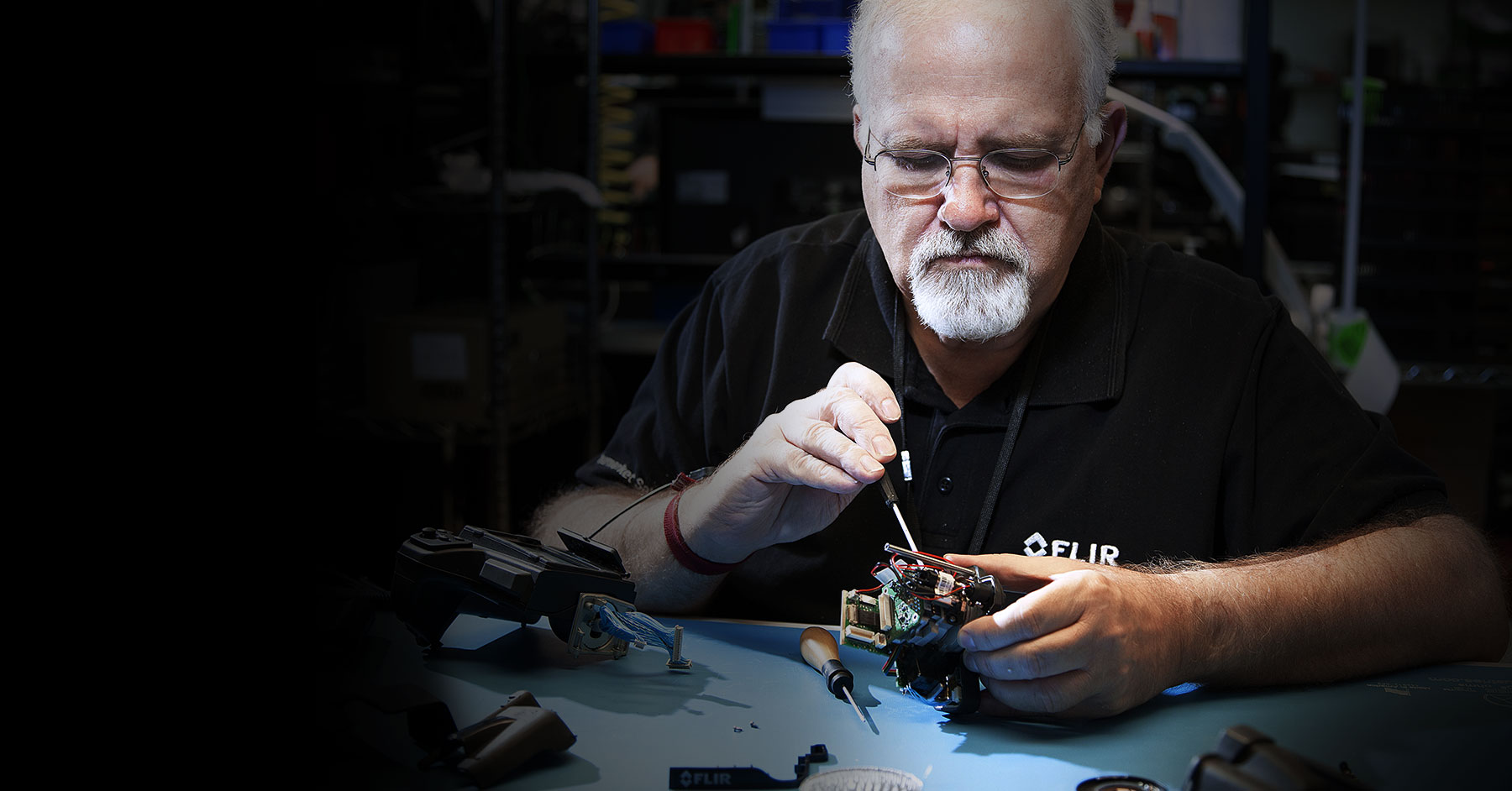

Boson GUI App
The Boson GUI provides the ability to quickly access radiometry settings critical to high-speed integration cycles, balancing schedule, cost, and performance. Optimizing radiometric parameters and using spot meters, regions of interest (ROI) with statistics, and a temperature bar allow for optimization during testing and tuning.
Comparing the Sensitivity of Thermal Imaging Cameras Modules
A thermal camera’s sensitivity will have a direct impact on the image clarity and sharpness that the camera can produce. Devices with better thermal sensitivity are ideal for a wide variety of uses from search and rescue to industrial inspection to security.
READ ARTICLE
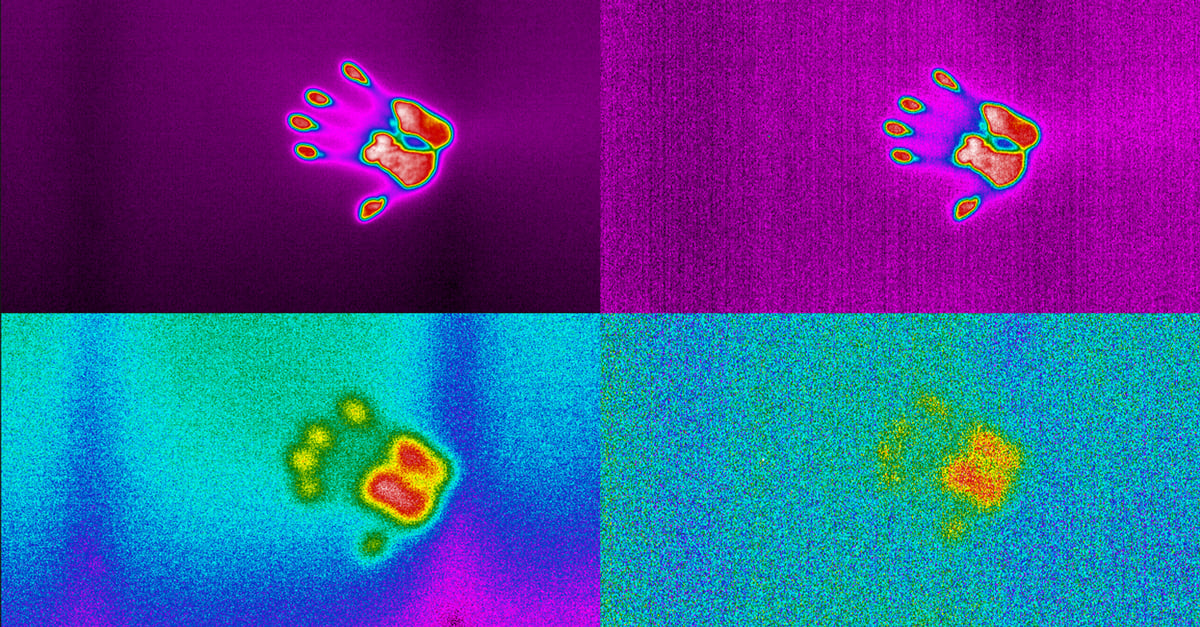

Why Radiometry? Understanding Qualitative vs. Quantitative Thermal Imaging
There are times when a simple thermal image is not enough to interpret a scene. In these scenarios, the ability to detect and record the temperature data from every pixel is vital to the task at hand. Radiometric thermal cameras measure the intensity of infrared signals reaching the camera to provide an accurate temperature reading of objects in the scene.
Knowledge Base



